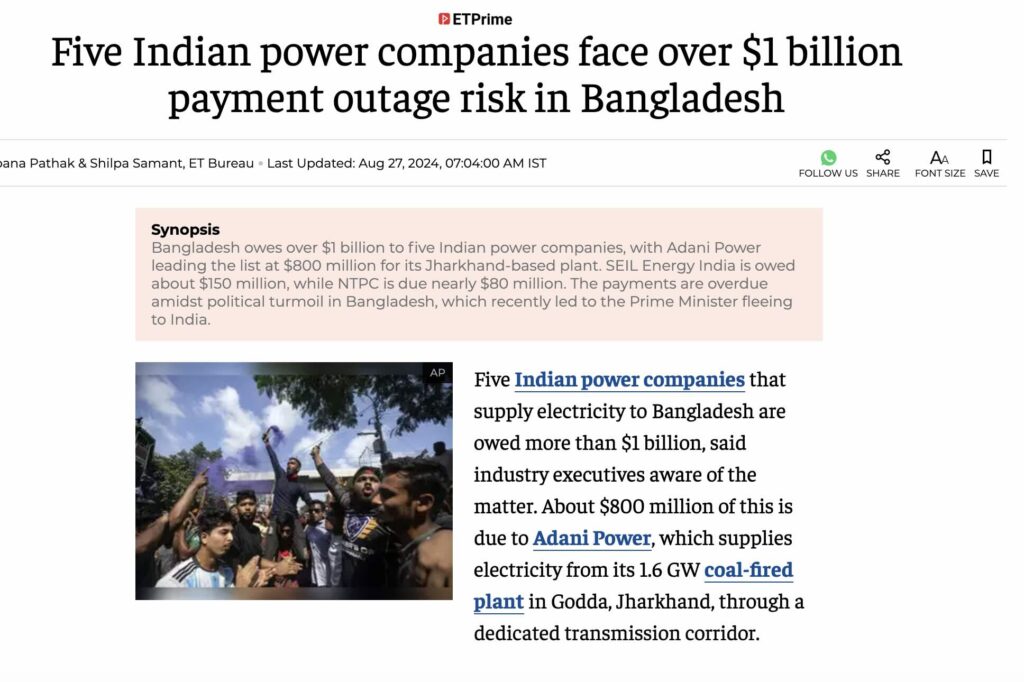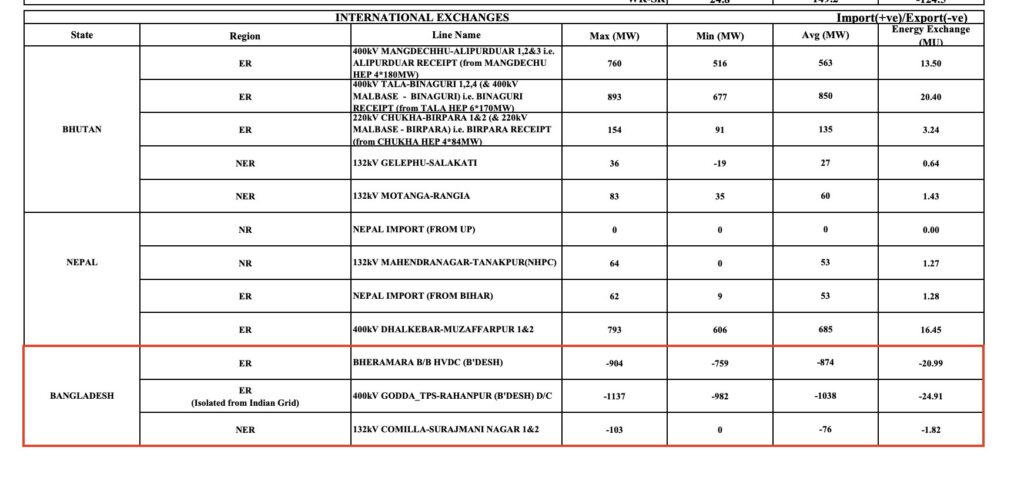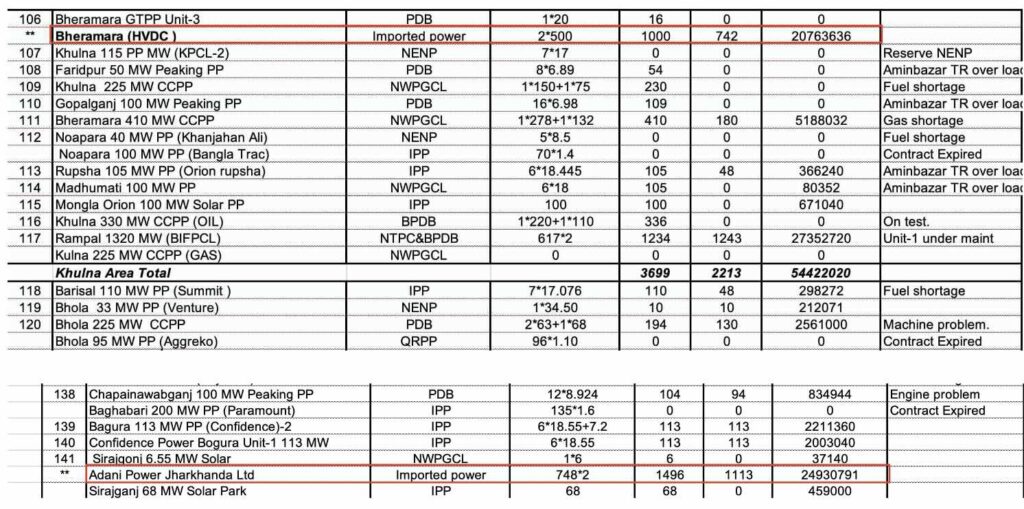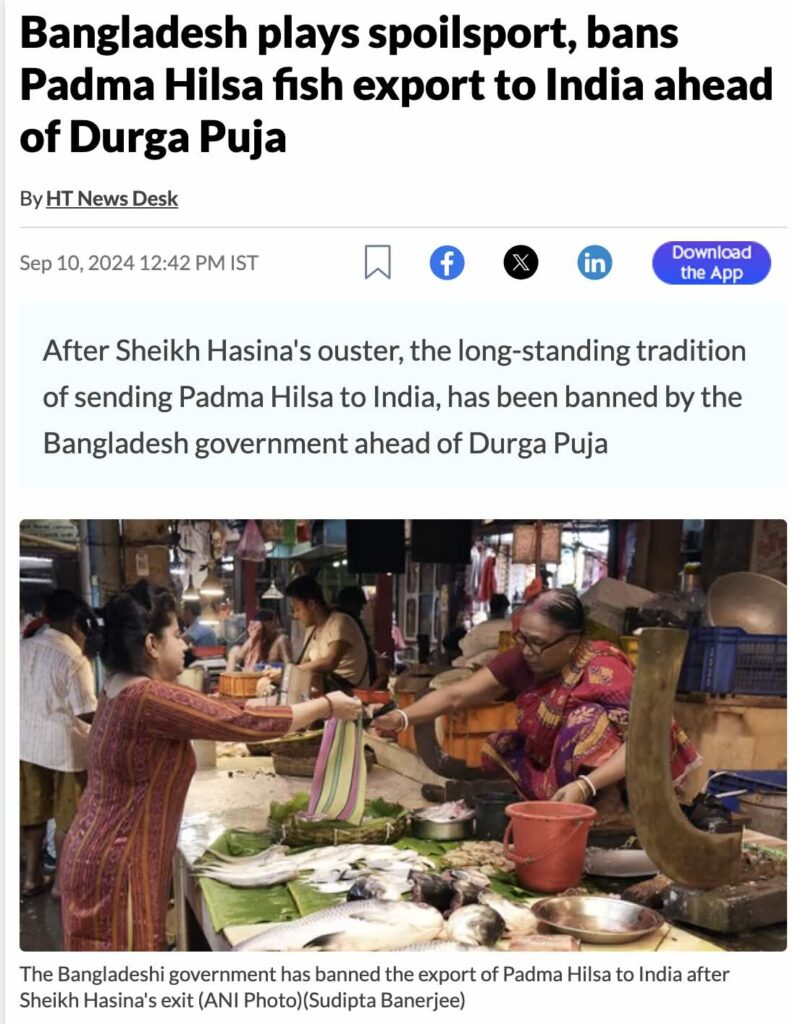Update (23 September 2024): On 21 September 2024, Bangladesh’s interim government said (here & here) it would export 3,000 tonnes of Hilsa to India coinciding with the upcoming Durga Puja, revising its earlier decision.
A post is going viral on social media platforms, claiming that India has stopped supplying electricity to Bangladesh and that Bangladesh has banned the export of Hilsa fish to India (here, here, here, and here). In this article, we fact-check the claims made in the post.

Claim: India has stopped supplying electricity to Bangladesh and in retaliation, Bangladesh has banned the export of Hilsa fish to India.
Fact: According to data available on the Indian National Load Dispatch Centre (GRID-INDIA) website and the Power Grid Bangladesh website, which manage power transmission in their respective countries, India has neither stopped its electricity supply to Bangladesh nor drastically reduced it recently. On the other hand, recent reports indicate that Bangladesh has banned the export of Hilsa fish to India. Hence the claim made in the post is MISLEADING.
To verify the accuracy of the viral claim that India has stopped supplying electricity to Bangladesh, we conducted a relevant keyword search. However, our search did not yield any credible reports supporting this claim. If such a development had taken place, it would have certainly garnered significant media attention.
During our search, we found several news reports (here, here, here) stating that the Bangladesh Power Development Board (BPDB) owes nearly $1 billion in unpaid bills to Indian electricity producers, including Adani Power and other state-owned firms such as NTPC and PTC India. Of this amount, approximately $800 million is owed to Adani Power.

According to a report by ‘Business Standard’, Bangladesh Bank’s newly-appointed Governor, Ahsan H. Mansur, confirmed the substantial debt owed to Adani Power in an interview with Bloomberg. Adani Power operates a coal-fired plant in Godda, Jharkhand, which was set up to supply electricity exclusively to Bangladesh.
A ‘Times of India’ report mentioned that Adani Power has sent a letter to the Bangladesh government, requesting the settlement of the $800 million owed by the BPDB for electricity supplied. Despite the growing debt, the report further stated that Adani Power has assured the Bangladesh government it will continue to provide reliable and competitively priced electricity.
A report by the ‘Dhaka Tribune’ published on 11 September 2024 stated that “although 1,000 MW was expected from India’s public and private sector electricity producers via the Bheramara link, only 880 MW is currently being received.” It also mentioned that an unpaid bill of Tk 9,500 crore ($800 million) has caused a coal shortage, limiting the Adani Group’s electricity supply to Bangladesh to 1,000 MW. Additionally, the supply from Tripura, India, has dropped, with only 60-90 MW being delivered per hour instead of the expected 160 MW.
We then checked the Indian National Load Dispatch Centre (GRID-INDIA) website, which manages power transmission in India. According to the data available on this website, nearly 47.7 million units of electricity on 18 September 2024, nearly 47.5 million units on 11 September 2024, nearly 46.23 million units on 30 August 2024, approximately 47.5 million units on 11 September 2024, about 46.23 million units on 30 August 2024, and around 47.7 million units on 10 August 2024. was supplied to Bangladesh from India. This data indicates that India has neither stopped its electricity supply to Bangladesh nor drastically reduced it recently.

We then checked the Power Grid Bangladesh website, which manages power transmission in Bangladesh. We found similar data (with slight variations, which is due to transmission losses) regarding the electricity supplied to Bangladesh from India (here).

Further, upon conducting a relevant keyword search, we found several reports (here, here) stating that the Bangladesh government has banned the export of Hilsa fish to India. This fish, particularly from the Padma River (a distributary of the Ganges), has traditionally been sent to India during Durga Puja and is essential to Bengali cuisine during the festive season.

To sum up, India has not stopped its electricity supply to Bangladesh; Bangladesh has banned the export of Hilsa fish to India.



